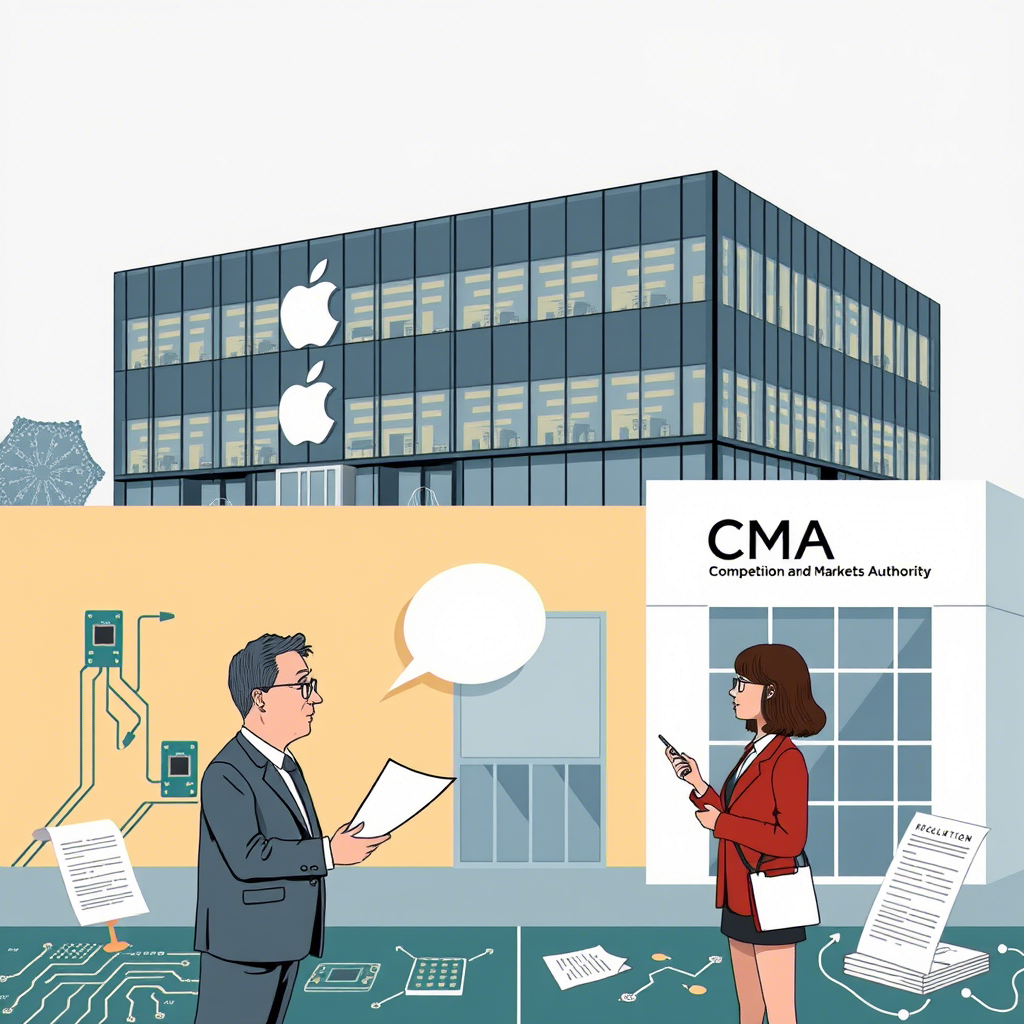In the ever-evolving landscape of technology, debates around competition, innovation, and consumer choice are becoming increasingly prominent. Recently, Apple made headlines by rejecting the UK’s Competition and Markets Authority (CMA) plans to impose greater control over mobile browser engines on iOS devices. This decision has sparked a heated discussion about market dominance, innovation, and the future of digital ecosystems.
This blog post delves into the details of this controversy, exploring the implications of Apple’s stance, the potential impact on consumers and developers, and what it means for the broader tech industry.
The CMA Proposal: A Push for Greater Competition
The UK’s Competition and Markets Authority (CMA) proposed a set of measures aimed at increasing competition in the mobile browser market. At the heart of these proposals is the requirement for Apple to allow third-party web rendering engines on its iOS platform. Currently, all browsers on iPhones and iPads must use Apple’s WebKit engine, which limits the ability of other companies to innovate and offer unique features.
The CMA argues that this restriction stifles competition and reduces consumer choice. By mandating the use of WebKit, Apple effectively controls how websites are displayed and interacted with on its devices. This not only limits the functionality of competing browsers like Google Chrome and Mozilla Firefox but also hinders developers from experimenting with new technologies and standards.
Apple’s Response: Protecting the Ecosystem
Apple strongly opposes the CMA’s proposal, citing several reasons for its rejection. The company argues that allowing third-party rendering engines would compromise the security and privacy of its users. Apple prides itself on providing a seamless and secure user experience, and it believes that maintaining control over the browser engine is essential to achieving this goal.
Additionally, Apple emphasizes the importance of consistency across its ecosystem. By requiring all browsers to use WebKit, the company ensures that users enjoy a uniform experience regardless of which browser they choose. This approach aligns with Apple’s broader philosophy of creating tightly integrated hardware and software solutions.
Furthermore, Apple contends that the CMA’s proposal could undermine its ability to innovate. The company invests heavily in developing WebKit, continually improving its performance, security, and compatibility with emerging web standards. Allowing third-party engines might divert resources away from these efforts, potentially slowing down progress in this critical area.
The Broader Implications: A Clash of Philosophies
This disagreement between Apple and the CMA reflects a larger debate within the tech industry about the balance between innovation and competition. On one hand, proponents of stricter regulations argue that dominant players like Apple should be compelled to open up their ecosystems to foster fairer competition. They believe that doing so will lead to more choices for consumers and encourage faster technological advancements.
On the other hand, companies like Apple maintain that their closed systems enable them to deliver superior products and experiences. They argue that opening up their platforms to third-party components could introduce vulnerabilities and degrade the overall quality of their offerings.
This clash of philosophies raises important questions about the role of government regulators in shaping the tech landscape. Should they prioritize promoting competition, even if it means compromising on aspects like security and consistency? Or should they defer to the expertise of tech giants, trusting them to act in the best interests of their users?
Consumer Impact: What Does This Mean for Users?
For everyday users, the outcome of this debate could have significant consequences. If the CMA’s proposals were implemented, users might gain access to a wider range of browser options with enhanced capabilities. For instance, alternative rendering engines could support advanced features like better performance, improved battery life, or enhanced support for cutting-edge web technologies.

However, there are concerns that loosening restrictions on browser engines could lead to fragmentation. Different browsers might behave inconsistently, causing confusion and frustration for users who expect a reliable experience across apps and services. Moreover, as Apple warns, there is a risk that opening up the system could expose users to greater security threats.
Ultimately, the impact on consumers will depend on how effectively any changes are implemented. Striking the right balance between choice and consistency will be crucial to ensuring that users benefit from increased competition without sacrificing the qualities they value in Apple’s ecosystem.
Developer Perspectives: Opportunities and Challenges
Developers also have a vested interest in this issue. Many welcome the prospect of having more freedom to innovate and differentiate their products. With access to alternative rendering engines, they could experiment with new ideas and push the boundaries of what mobile browsers can do.
At the same time, developers face challenges in adapting to a more fragmented environment. Writing code that works seamlessly across multiple engines requires additional effort and resources. Furthermore, if Apple continues to focus its development efforts on WebKit, developers may find themselves torn between optimizing for Apple’s preferred engine or catering to users of alternative browsers.
For smaller developers, the financial and technical burdens associated with supporting multiple engines could prove prohibitive. As such, while increased competition might create opportunities for some, it could also exacerbate existing inequalities in the app development space.
Global Ramifications: Setting a Precedent

The outcome of this dispute between Apple and the CMA could set an important precedent for similar cases worldwide. Other countries and regions grappling with issues of tech monopolies and market fairness will likely take note of how the situation unfolds in the UK.
If the CMA succeeds in compelling Apple to adopt its recommendations, it could embolden regulators elsewhere to pursue comparable actions. Conversely, if Apple manages to fend off these demands, it may reinforce the status quo, allowing large tech companies to maintain tight control over their ecosystems.
Regardless of the result, the global tech community will be watching closely. The decisions made today will shape the trajectory of innovation and competition in the years to come.
Conclusion: Navigating the Future of Tech Regulation
The debate over mobile browser controls exemplifies the complex challenges facing modern technology regulation. While promoting competition is undoubtedly important, it must be balanced against considerations like security, consistency, and innovation. Finding this equilibrium requires careful thought and collaboration between stakeholders, including governments, tech companies, and end-users.

As the battle between Apple and the CMA continues, one thing is clear: the future of digital ecosystems hangs in the balance. Will we see a world where openness and choice reign supreme, or will closed systems continue to dominate? Only time will tell, but one thing is certain—this is just the beginning of what promises to be an ongoing conversation about the role of technology in our lives.
For now, all eyes remain fixed on Apple and the CMA as they navigate this pivotal moment in the history of tech regulation. Whatever the outcome, it will undoubtedly leave a lasting mark on the industry and influence how we interact with technology for years to come.

